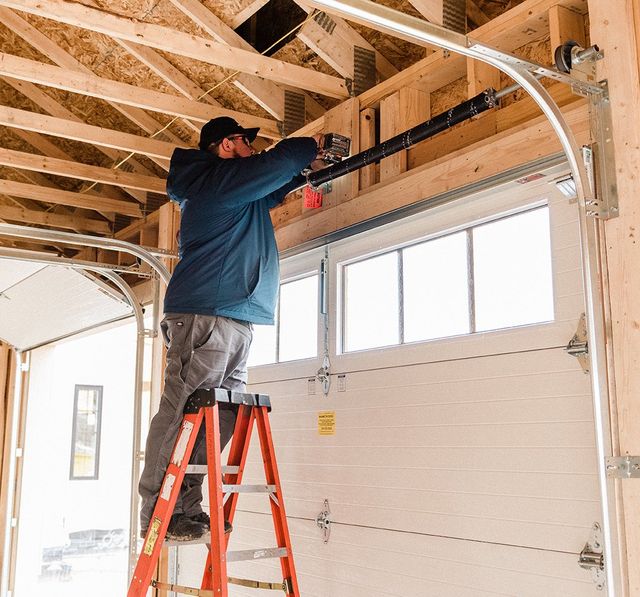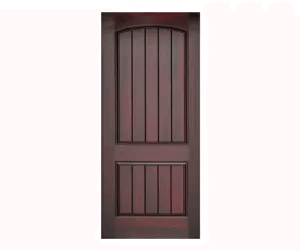Whatever You Need to Understand About Selecting the Perfect Door for Any Space
Selecting the excellent door for any kind of area needs careful factor to consider of numerous variables. Various door kinds serve distinct purposes, while products can affect both longevity and aesthetic appeals. Dimensions play an essential role in functionality. Protection functions can not be neglected. As one browses the intricacies of design and upkeep, the options can feel frustrating. Comprehending these aspects is important for making an informed decision that balances functionality with style. What vital factors will become most substantial?
Understanding Various Door Types
When choosing a door, it is important to recognize the numerous types offered, as each serves a distinctive objective and aesthetic. The most usual kinds include pivoted, gliding, bi-fold, and pocket doors. Hinged doors, which turn open on a collection of hinges, are flexible and appropriate for both indoor and outside usage. Sliding doors, often utilized for patio areas, save area and use a seamless shift in between indoors and outdoors. Bi-fold doors contain numerous panels that fold up to one side, making them suitable for wide openings and making the most of natural light. Pocket doors slide into the wall surface, providing a hidden choice that is excellent for small spaces. Each door type not only adds to capability however additionally boosts the overall design of an area, enabling home owners to choose a style that complements their personal preference and architectural vision. Comprehending these choices is crucial for making an educated choice.
Discovering Products and Their Advantages
Picking the ideal door product can significantly affect both performance and appearances. Various products supply distinctive benefits, making it vital to evaluate the specific demands of a room. Timber doors, as an example, are valued for their natural beauty and insulation residential or commercial properties. They can be customized to fit any kind of layout style, however need regular upkeep to protect against bending and damage.
Metal doors, especially steel, offer enhanced security and durability, making them ideal for outside applications. They are resistant to weather and insects, but may lack the heat of timber. Fiberglass doors incorporate the most effective of both worlds, offering durability with the look of wood, while likewise being energy-efficient.
Lastly, glass doors can create a feeling of openness and permit all-natural light to flow right into an area. Nevertheless, they may require added personal privacy options. Comprehending these materials makes it possible for informed choices that align with both useful demands and visual preferences.

Size Issues: Picking the Right Dimensions
When selecting a door, comprehending the ideal dimensions is vital. Typical door sizes give a useful starting point, however properly gauging one's space guarantees an appropriate fit (entry door replacement). Furthermore, considerations for custom-made measurements might emerge, specifically in unique architectural settings
Common Door Sizes
The measurements of doors play a critical duty in both capability and visual appeal within a space. Basic door sizes vary based on the kind of door and its desired usage. The most typical interior door dimensions are 24, 28, 30, 32, and 36 inches in width, with elevations generally at 80 inches. Exterior doors have a tendency to be bigger, usually gauging 36 inches, supplying much easier gain access to. Additionally, some basic dimensions might fit particular needs, such as double doors or pocket doors, which can boost style adaptability. It is crucial to take into account these basic measurements when picking a door, as they ensure compatibility with existing frameworks and offer a well balanced aesthetic impact, eventually adding to the total style of the space.


Measuring Your Area
Accurate measurements are crucial for guaranteeing that a brand-new door fits perfectly within an assigned opening. To start, one must determine the size and elevation of the door structure, taking note of any kind of abnormalities in the structure. It is a good idea to determine at numerous factors to account for variations, particularly in older homes. The typical door size is generally 30, 32, or 36 inches, while the height normally gauges 80 inches; nonetheless, it is important to validate these measurements versus the specific opening. Furthermore, think about the swing direction of the door and any type of prospective blockages in the bordering area. Appropriate dimensions enable a smoother installation process and enhance the total capability of the door within the room.
Personalized Capacities Considerations
Personalized measurements play an important function in making sure that a door not only fits completely but also enhances the general style of a space. doors supplier. When selecting a door, it is vital to take right into account the one-of-a-kind dimensions of the door framework, as well as any building functions nearby. Custom-sized doors enable a smooth combination into various designs, whether standard, contemporary, or rustic. In addition, they can improve performance, providing ample clearance and ease of access. Property owners must also consider the door's thickness and product, as these aspects can affect insulation and durability. Inevitably, buying personalized dimensions leads to a tailored service that boosts the visual allure and usefulness of any type of room, producing a cohesive atmosphere
Enhancing Safety Features
While home owners prioritize visual allure when choosing a door, boosting safety and security attributes remains a crucial factor to consider. A well-chosen door not only enhances the home's design however additionally acts as a very first line of protection against intrusions. The product plays a significant duty; solid timber or steel have a peek at this site doors generally use exceptional toughness compared to hollow-core options.
In enhancement to material, home owners ought to take into consideration the door's locking mechanisms. Multi-point securing systems provide improved protection by engaging at a number of factors along the structure, making forced access harder. Reinforced frames and strike plates can further strengthen door safety.
In addition, the installation of smart locks provides ease and innovative safety and security functions, such as remote tracking and keyless access. Property owners ought to likewise examine door limits and weather condition stripping, as these can stop unauthorized gain access to and enhance energy performance. Inevitably, incorporating durable protection functions assurances satisfaction without compromising the door's overall functionality.
Visual Factors To Consider: Style and Design
A door's style and design substantially affect a home's general aesthetic, as it functions as both an entryway and a visual centerpiece. Selecting the best door entails reviewing different design elements that mirror the home owner's preference and the architectural style of the residential property. Contemporary homes may gain from streamlined, minimalist doors including glass panels, while standard styles could accept ornate wood designs with detailed makings.
Color and coating likewise play significant duties in improving aesthetic charm; bold tones can make a declaration, while muted tones frequently mix harmoniously with the surrounding environment. Furthermore, hardware choice-- such as deals with and pivots-- should complement the door's design to create a natural appearance.
Eventually, a thoughtfully selected door not just improves aesthetic charm yet also establishes the tone for the indoor area, making it necessary to assess aesthetic variables during the choice procedure.
Maintenance and Longevity Elements
When picking a longevity, door and maintenance are necessary considerations that influence its long-term efficiency. A summary of product options exposes differing levels of upkeep and strength, while useful upkeep pointers can extend the door's life expectancy. Furthermore, examining weather condition resistance is crucial for guaranteeing that the door endures ecological aspects effectively.
Material Comparison Review
Picking the ideal door material is important for home owners looking for resilience and low maintenance. Various materials offer distinct benefits. Steel doors, for circumstances, offer superb resistance to tear and put on, making them excellent for high-traffic locations. Fiberglass doors are an additional solid option; they withstand dampness and are much less susceptible to dents and scratches. Timber doors, while cosmetically pleasing, need more upkeep as a result of sensitivity to bending and decay. Vinyl doors present an affordable service with minimal upkeep, though they might not provide the same long life as steel or fiberglass options. Inevitably, the selection of material influences not just the door's life expectancy but additionally the amount of maintenance called for, influencing total home owner complete satisfaction.
Maintenance Tips for Long Life
Normal upkeep plays an essential function in extending the life-span of doors, regardless of the product selected. Homeowners must routinely evaluate doors for any type of indications of damages, such as cracks or bending. For wooden doors, regular sanding and refinishing can prevent damage and preserve visual appeal. Steel doors profit from a clean, rust-free surface, which can be achieved with regular cleansing and the application of protective coverings. Hinges and locks require lubrication to assure smooth operation, lowering deterioration. Furthermore, making sure that door frameworks are correctly straightened can avoid excessive anxiety on the door itself. By adhering to these upkeep practices, people can significantly boost the sturdiness and functionality of their doors, eventually adding to lasting value.
Weather Condition Resistance Factors To Consider
Although climate resistance is frequently ignored, it is a crucial factor in the option and maintenance of doors. Proper weather-resistant doors can greatly enhance a home's energy efficiency and safeguard against temperature, wind, and moisture fluctuations. Materials such as fiberglass and steel use remarkable learn the facts here now durability compared to wood, which click reference may warp or rot gradually. Furthermore, the high quality of seals and weather stripping plays an essential role in avoiding drafts and water infiltration. Normal examinations and upkeep can further extend a door's life-span, guaranteeing it stays visually appealing and useful. House owners must prioritize weather condition resistance to alleviate possible damage and decrease lasting repair work costs, inevitably adding to an extra sustainable living environment.
Frequently Asked Concerns
Just how Do I Know if I Need a Custom-Sized Door?
To figure out if a custom-sized door is required, one need to gauge the existing door framework and analyze any irregularities or special building features. If typical sizes do not fit, personalized options end up being necessary for proper installment.
What Are the most effective Door Options for Soundproofing?
The very best door choices for soundproofing consist of strong wood doors, fiberglass doors with sound-dampening cores, and particularly designed acoustic doors. These materials properly reduce noise transmission, boosting privacy and convenience in different atmospheres.
Can I Set Up a Door Myself, or Should I Employ an Expert?
If he possesses the required skills and devices, he can install a door himself (front door replacement). Hiring an expert may assure a greater high quality installation, particularly for facility or hefty doors requiring precise measurements and alignment.
What Are the Ordinary Prices Connected With Different Door Kinds?
Typical costs for doors differ significantly; interior doors vary from $50 to $500, exterior doors from $200 to $2,000, and specialty doors can go beyond $5,000. Setup, material, and layout influence total rates.
Exactly How Can I Enhance Energy Efficiency With My Door Option?
Picking protected doors with weather condition stripping and energy-efficient glazing significantly improves energy efficiency. Furthermore, selecting strong products over hollow options reduces air leak, contributing to better temperature level law and reduced power bills in any room.
Basic door sizes vary based on the type of door and its intended use. When selecting a door, it is crucial to take right into account the distinct measurements of the door framework, as well as any architectural attributes close by. Additionally, making certain that door structures are correctly straightened can prevent undue stress and anxiety on the door itself. The ideal door alternatives for soundproofing include strong wood doors, fiberglass doors with sound-dampening cores, and particularly made acoustic doors. Average expenses for doors vary substantially; indoor doors vary from $50 to $500, exterior doors from $200 to $2,000, and specialty doors can surpass $5,000.